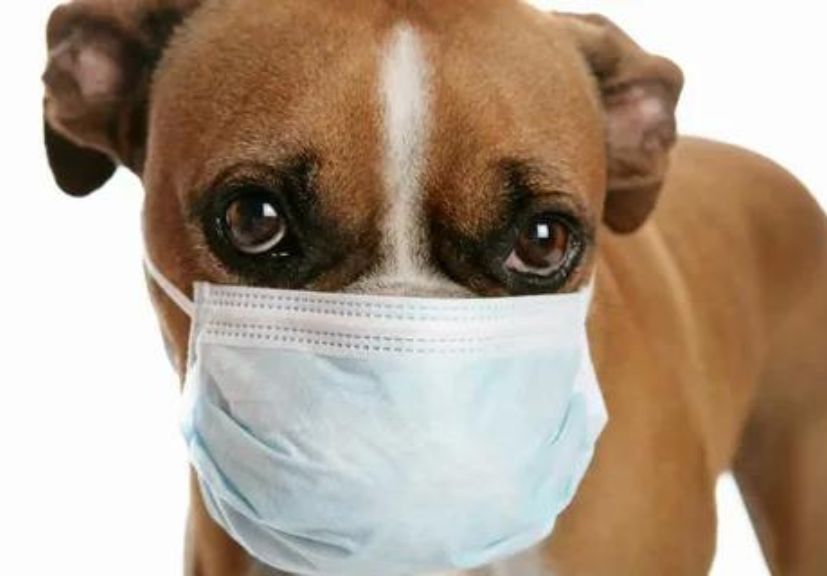Our pups bring so much happiness, from their playful antics to their loyal companionship. So, it’s especially problematic when they’re not feeling their best. As pet parents, knowing how to handle the situation and provide the care they need to return to health is vital. Whether it’s a tummy ache, a cold, or a more serious condition, understanding sick dog care can help you support your furry friend through their recovery. In this comprehensive dog guide, we’ll explore how to recognize the signs of illness, provide at-home care, and when to seek professional help. Following these steps and providing love and care can help your pup feel better in no time.
Recognizing the Signs: When Your Dog Isn’t Feeling Themselves
Dogs can’t speak to us in words, but they communicate in their way. We must pay attention to the behavioral changes and physical symptoms that may indicate they aren’t feeling well. Here are some common signs that could suggest your dog is under the weather:
- Changes in Appetite: A sudden loss of interest in food, especially their favorite meals, could be an early red flag. On the flip side, you might also wonder, “Why is my dog always hungry?” This could indicate metabolic changes that may require medical attention.
- Lethargy: If your dog, typically full of energy, seems sluggish or disinterested in playtime, this can signal something is wrong. It’s especially concerning when combined with other symptoms.
- Vomiting or Diarrhea: Occasional digestive issues are not uncommon in dogs, but persistent vomiting or diarrhea can be a sign of a more serious problem. Watch out for dehydration, which can occur rapidly when your dog loses fluids. Blood in vomit or stool is always a reason to visit the vet immediately.
- Fever: A dog’s normal temperature ranges between 101-102.5°F (38.3-39.2°C). You can take their temperature rectally if you suspect a fever. Signs of a fever might include shivering, panting, or a dry nose.
- Behavioral Changes: If your dog is hiding, acting aggressively, or whining excessively, these could be signs of discomfort or pain. Some dogs may even seem depressed or withdrawn when they’re not feeling well.
Quickly acting is important if you’re seeing any of these symptoms in your dog. The earlier you catch signs of illness, the easier it is to address the problem before it escalates into something more serious.
Common Dog Health Problems
While all dogs can fall ill occasionally, certain medical conditions are more commonly seen in dogs of all ages. Some of the common dog health problems include:
- Canine Parvovirus: Particularly dangerous for puppies, this virus affects the gastrointestinal tract and can cause severe vomiting, diarrhea, and lethargy.
- Kennel Cough: A highly contagious respiratory disease often contracted in boarding facilities, dog parks, or grooming centers. A persistent cough is a telltale sign.
- Canine Arthritis: Older dogs, especially larger breeds, are prone to arthritis, which can cause significant discomfort and reduce mobility.
- Allergies: Dogs can suffer from environmental, food, or seasonal allergies, often resulting in itchy skin, excessive scratching, and gastrointestinal distress.
Understanding the common health issues affecting your dog will help you stay vigilant and take preventive measures to keep them healthy.
Seeking Professional Help for Sick Dog Care
When in doubt, it’s always best to consult with a veterinarian. Home care is helpful for minor issues, but professional care is essential if your dog’s symptoms persist or worsen. Prompt veterinary attention can significantly affect your dog’s recovery, especially in more severe cases. Here are some symptoms that should never be ignored:
- Severe Vomiting or Diarrhea: This is especially concerning if it’s accompanied by blood, as it could indicate serious conditions like parvovirus or gastrointestinal bleeding.
- Difficulty Breathing: Labored or rapid breathing, excessive panting, or coughing should be assessed by a vet immediately, as they could be symptoms of heart disease or respiratory infections.
- Inability to Stand: If your dog is unusually weak, collapses, or seems unable to stand, these could be signs of a neurological problem or severe dehydration.
- Persistent Coughing: A chronic cough could indicate conditions like kennel cough or heartworm disease requiring treatment.
- Unusual Discharge: Eye or nasal discharge, especially if it’s thick, yellow, or green, can point to an infection needing medical intervention.
Early diagnosis and treatment are key to your dog’s well-being. Don’t hesitate to contact your vet if you’re unsure about your dog’s symptoms. Remember, it’s better to be safe than sorry when it comes to your pet’s health.
Promoting Rest and Recovery
Rest is vital for your dog’s recovery, no matter the illness. Like humans, dogs need plenty of sleep and a low-stress environment to heal properly. Here’s how you can create a comfortable space for your dog to recuperate:
- Quiet Space: Designate a quiet, low-traffic area in your home where your dog can rest without disturbances. A cozy corner with their favorite bed or a crate lined with soft blankets will make them feel safe.
- Minimize Disruptions: Keep noise levels low and reduce foot traffic around your dog’s resting space. Inform family members, especially children, about your dog’s condition so they can be gentle and avoid unnecessary interactions that may cause stress.
- Temperature Control: Keep the room temperature comfortable for your dog. If it’s chilly, you can add a heating pad on a low setting, but always supervise to avoid overheating. Ensure the room isn’t too warm for dogs recovering from a fever.
Proper rest and a comfortable environment can speed up your dog’s recovery. Ensuring they have a peaceful space to recuperate will help them regain their strength more quickly.
Hydration and Nutrition
Dehydration in dogs, in fact in any living thing is never bearable for them. Hydration is critical when a dog is sick, especially if they are experiencing vomiting or diarrhea. Here are some tips to ensure your dog stays hydrated and nourished:
- Fresh Water: Always ensure your dog can access fresh, clean water. Some dogs may not like drinking when sick, so try adding ice cubes to the water bowl or using a stainless steel bowl to encourage them.
- Electrolytes: In cases of significant fluid loss, your vet may recommend an electrolyte solution to help rehydrate your dog. These solutions are specially formulated for pets and can be added to their water.
When it comes to food, some changes may be necessary based on your dog’s condition:
- Bland Diet: A bland diet can help settle their stomach if your dog has been vomiting. Common recommendations include boiled chicken and white rice. Gradually reintroduce their regular food once they start feeling better.
- Veterinary Diets: For dogs with specific illnesses, your vet may prescribe a special diet formulated to meet their nutritional needs. Follow your vet’s guidance carefully, especially regarding portion sizes and feeding schedules.
- Tempting Treats: If your dog’s appetite is low, you can offer small, enticing treats like warm, cooked chicken or canned dog food to encourage them to eat.
Proper nutrition and hydration are key components of sick dog care. Even when modified for illness, a well-balanced diet will give your dog the necessary nutrients to recover.
Medication Administration: Following the Vet’s Orders
If your dog requires medication, it’s essential to administer it correctly for the best results. Follow your vet’s instructions carefully regarding dosage and timing. Here are some tips to make this process easier:
- Understand the Medication: Before giving any medication, ensure you understand what it does, its potential side effects, and how long your dog needs to take it. Don’t hesitate to ask your vet questions.
- Pills and Tablets: Some medications are chewable, but if your dog resists, ask your vet if it’s safe to crush the pill and mix it with food. Alternatively, you can hide it in a pill pocket or a small piece of their favorite treat.
- Liquid Medication: Use a syringe or dropper to administer liquid medications. Aim for the pouch between your dog’s cheek and teeth, and give the liquid slowly. Afterward, hold their mouth closed and gently blow on their nose to encourage them to swallow.
Administering medication correctly is crucial to your dog’s recovery. If you have trouble, ask your vet for alternative methods, such as flavored versions or different forms of medication.
Monitoring Your Dog’s Progress
Keeping a close eye on your dog during recovery is important to ensure they’re on the right track. Regularly monitor their:
- Appetite: Your dog should gradually regain their appetite. If they continue to refuse food, contact your vet for advice.
- Energy Levels: A slow return to normal energy levels is a good sign, but any sudden changes (either improvement or decline) should be noted.
- Symptoms: Track your dog’s symptoms, especially if they are running a fever or experiencing digestive issues. Maintaining their progress can help you provide detailed updates to your vet.
Senior Dog Care Tips
Older dogs may require extra attention when they fall ill. Senior dogs are more prone to certain health conditions like arthritis, heart disease, and diabetes, which can complicate their recovery. Here are some tips for caring for a senior dog during illness:
- Joint Support: If your senior dog has arthritis, ensure their bed is well-padded and consider adding ramps or steps to help them get around.
- Frequent Vet Visits: Older dogs may need more frequent vet check-ups to monitor their overall health, especially if they’re recovering from an illness.
- Special Diets: Senior dogs often require diets tailored to their aging bodies. Talk to your vet about a diet that supports your health during illness.
Conclusion
Caring for a sick dog is never easy, but with the right approach, you can ensure they recover swiftly and comfortably. From creating a quiet, relaxing environment to ensuring they’re hydrated and following veterinary advice, every small step helps in their healing journey. The key to sick dog care lies in close observation, timely veterinary consultations, and providing plenty of love and attention.
In times of illness, our dogs need us more than ever, and by following these tips, you can make a world of difference in your furry friend’s recovery. Always prioritize their health and well-being, and never hesitate to ask your vet for guidance.
References:
- American Kennel Club (AKC). “Dog Health: How to Care for a Sick Dog.
- PetMD. “Veterinary Care for Sick Dogs: What to Expect.




